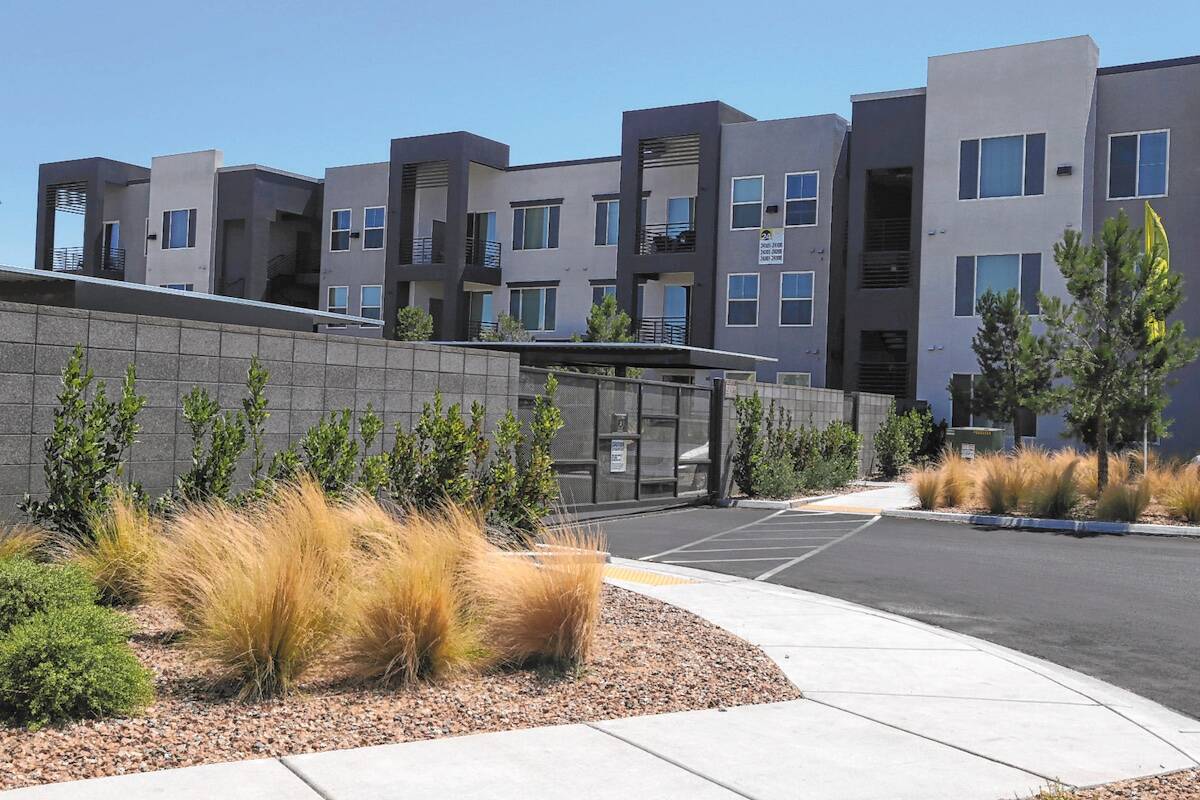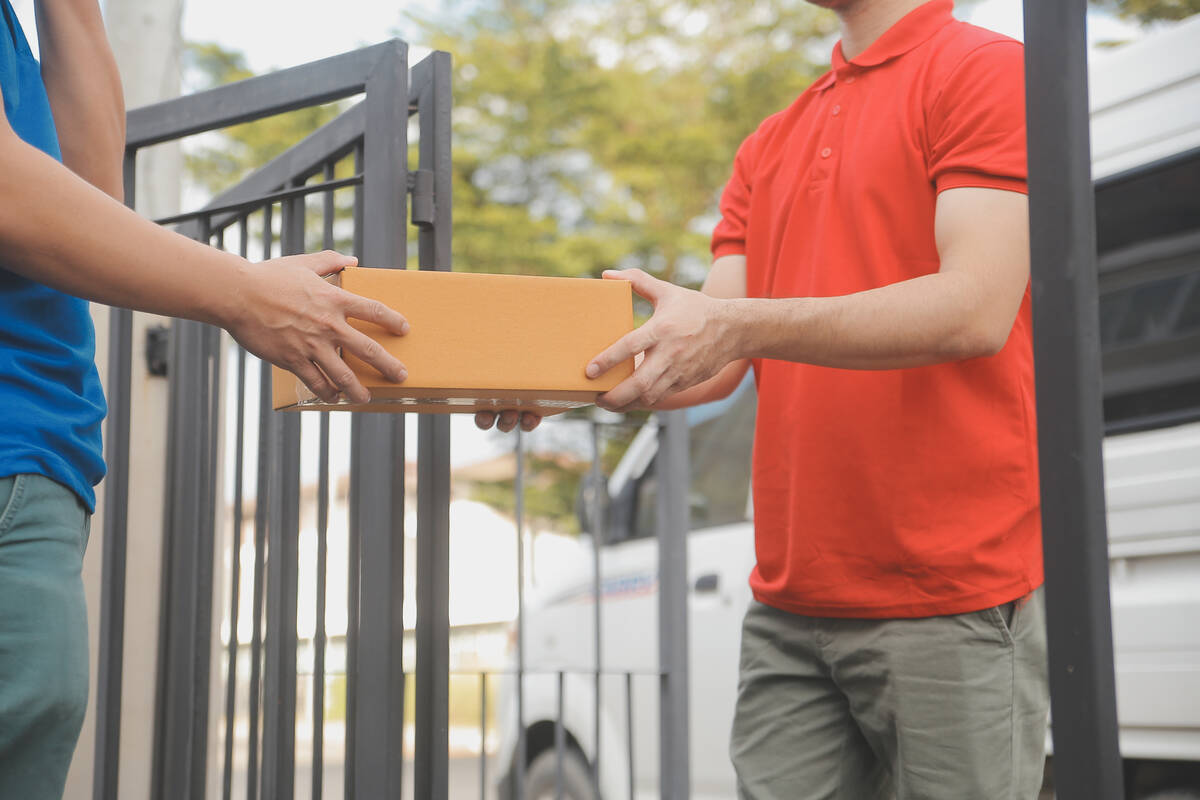Apartment junk-fee reform among new Nevada laws that could affect you
More than 518 new laws are on the books in Nevada — but what does that mean for you?
Sure, the state concluded its biennial legislative session having passed major education reform, pushed forward funds for attainable housing and made changes to health care, but it might not be easy for the average Nevadan to see how what happens in Carson City actually impacts them.
Here are 15 new laws that could affect you:
1. Your rental application fee must be returned if you don’t get an apartment
Landlords who collect an application fee to rent an apartment must return the fee to the prospective tenant if they do not get the apartment, thanks to AB121, which prohibits junk fees from landlords when paying rent.
The new law, beginning on Oct. 1, also prohibits landlords from charging a fee to renters who pay for rent using an online platform that exceeds the cost of running the platform.
2. Order cocktails to go
If you miss the time during COVID-19 when you could order a margarita from DoorDash to go along with your Mexican food, you’re in luck.
Assembly Bill 375 allows a board of county commissioners or governing body to enact an ordinance allowing food establishments to sell or deliver alcoholic beverages to go.
3. You might need a license for your home business
If you make cosmetics or food from your kitchen to sell, you must apply to the State Department of Agriculture for a license to conduct a “cottage” operation.
AB352 modernizes Nevada’s homemade, or “cottage” food laws and aims to allow more residents to earn a living from their kitchens. The new law allows cottage food operations to sell their products online or by phone, and it raises the annual revenue cap from $35,000 to $100,000 for producers.
4. Fake pot shops banned
Tourists will soon see fewer shops purporting to be cannabis dispensaries thanks to a new law. AB504 makes it a deceptive trade practice to claim a shop’s hemp products are cannabis or otherwise produce an intoxicating effect.
Beginning on Oct. 1, when the law goes into effect, a store selling hemp products — often found in gaming corridors where cannabis dispensaries are not legal — will be required to display a visible sign that states, “This location is not licensed to sell cannabis.” Furthermore, the sales station must include a sign that says, “All hemp products contain less than the legal limit of THC,” or the intoxicating chemical in cannabis.
5. Victims of identity theft can get a new license for free
SB291 requires the DMV to establish procedures for someone who is a victim of identity theft to get a new driver’s license with a new license number free of charge, beginning in 2027.
6. If you don’t stop for a school bus drop-off, you could get cited thanks to a camera
AB527 allows school districts to install cameras on school buses to enforce vehicle stops for school buses.
When a school bus is stopped to either drop off or pick up a student, cameras will catch drivers who fail to stop. Traffic enforcement officers will review the footage from the camera before issuing a civil infraction citation.
7. Don’t release helium balloons
If you intentionally release a balloon filled with gas lighter than air — most often, helium balloons — you could be subject to a $250 civil penalty. Hot air balloons, government or scientific research balloons, and indoor balloons are exempt. AB194 is effective on Oct. 1.
8. No bounce houses when it’s windy
AB198 prohibits the use of bounce houses and other similar inflatables if there are wind speeds higher than 15 mph. It also requires the use of stakes and weights to anchor the inflatable.
The bill was dedicated to Lizzy Hammond, a 9-year-old Reno girl who died in 2019 after a wind gust picked up the play structure she was in.
The new law, which goes into effect on Jan. 1, also requires operating businesses to be licensed, have a $1 million liability insurance policy and keep a log book on an inflatable device’s use.
9. If you drink and drive, you could face stricter penalties
Repeat offenders sentenced for driving under the influence could see less leniency in sentencing under SB309. Effective on Oct. 1, second offense penalties are increased and the concentration of alcohol in an offender’s blood or breath that triggers an alcohol or substance abuse evaluation is lowered to 0.16, down from 0.18.
The new law also allows for prosecutors to file enhanced charges for a third-time offender who is in a DUI specialty court program at the time of the offense.
10. You may be able to play in a private gaming salon easier
Minimum wager amounts in private gaming salons may get lower after a new law removes statutory minimums and other requirements for the high-roller private gaming rooms found in many casinos.
SB459 removes a $500 minimum wager requirement on slot machines in the salons and allows casinos to set their own minimums with approvals from state gaming regulators. It also removes a requirement to include table games. The new law is already in effect.
11. If you buy cigars online, they could get taxed
AB471 imposes a 30 percent tax on the actual cost of cigars and pipe tobacco sold online to Nevada customers. Certain premium cigars will have a tax of 30 to 50 cents per cigar. The tax applies for sellers who meet sales volume thresholds in the state.
12. If you rent a car, you need to show proof of insurance
SB194 requires short-term lessors to require proof of insurance from someone trying to rent a car, or else the car rental place can sell the person temporary insurance from a third party. The new law takes effect on Oct. 1.
13. Construction can begin earlier in the day during the summer
Construction workers face sweltering heat working outside in the summer, and thanks to AB478, they can start work as early as 5 a.m. between April 1 and Sept. 30, as long as it is more than 300 feet away from an occupied residential unit. Still, you might hear some construction noise in the early morning. The new law has already taken effect.
14. Your landlord can’t prohibit you from displaying religious signs
Also known as the “mezuzah law” for the religious object nailed to the doorways of Jewish homes, SB201 prohibits homeowners associations and landlords from restricting the display of religious or cultural items.
It does not apply to items that are greater than 36 by 12 square inches, and they cannot be discriminatory or obscene.
15. Air quality standards for outdoor work during wildfire season
SB260 requires state officials to adopt regulations requiring employers to take specific measures to reduce wildfire smoke exposure when the air quality index from wildfire smoke reaches 150-199, or unhealthy levels for sensitive groups, and above 200, or very unhealthy conditions. It also requires them to prohibit employees from working outdoors when it reaches a certain threshold to be defined in the regulations.
The law does not apply to employers who have 10 or fewer employees, is an operator of a mine, employs commercial truck drivers or is a provider of emergency services.
Employers also must set up a system that alerts them to poor air quality and to report symptoms, along with training standards.
^
Contact Jessica Hill at jehill@reviewjournal.com and McKenna Ross at mross@reviewjournal.com. Follow @jess_hillyeah and @mckenna_ross_ on X.



















